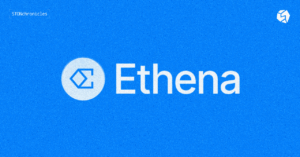A liquidity pool is a basis for DeFi that does not have an exact equivalent in the classical financial system. In simple terms, a liquidity pool is a smart contract where a certain number of tokens is blocked so that any DeFi participants can use them for exchanges, crediting, blockchain games, profitable yield farming, and other operations. Decentralized exchanges (DEX) that use automated market making (AMM) work on liquidity pools.
The providers who bring liquidity to the pool receive compensation when traders use their funds. Liquidity pool users get immediate access to the tokens they exchange. There are no intermediaries in this process, be they DEX operators or other people – the system of decentralized finances (DeFi) uses only smart contracts that operate independently, cannot be modified, and can be checked at any time.
There must be enough liquid assets in cryptocurrencies in DeFi to secure the operation of the entire system. Otherwise, transactions cannot be conducted within the pool. Anyone can be a liquidity provider for a pool.
We’ll discuss how to earn money participating in liquidity pools in subsequent posts.





